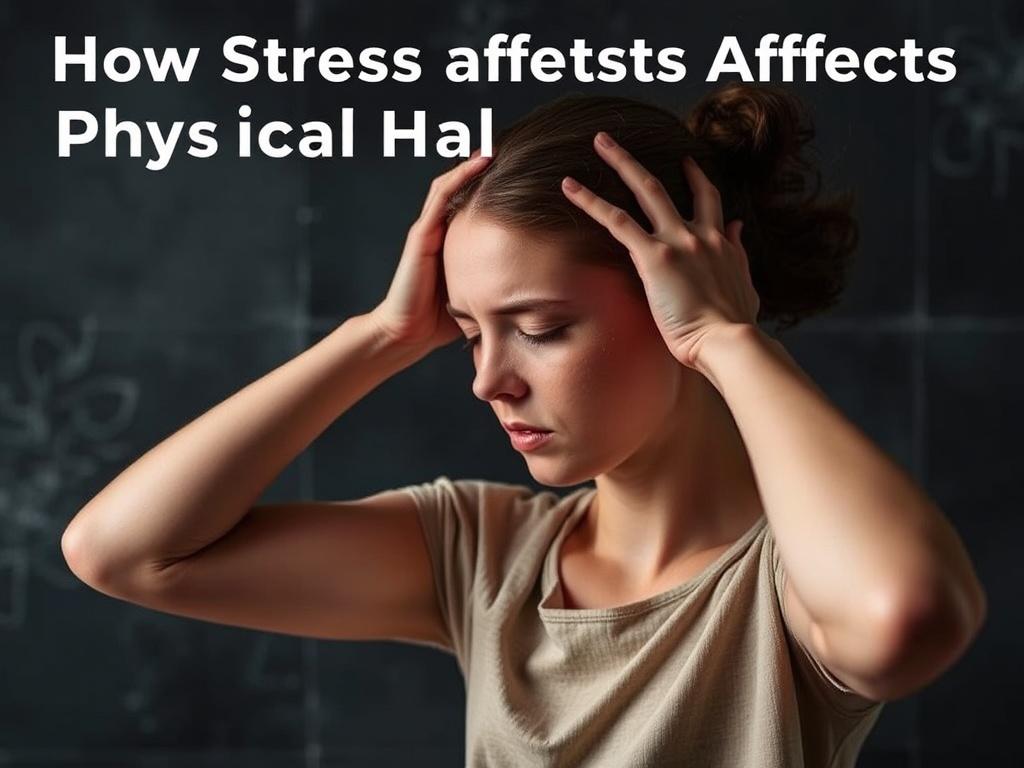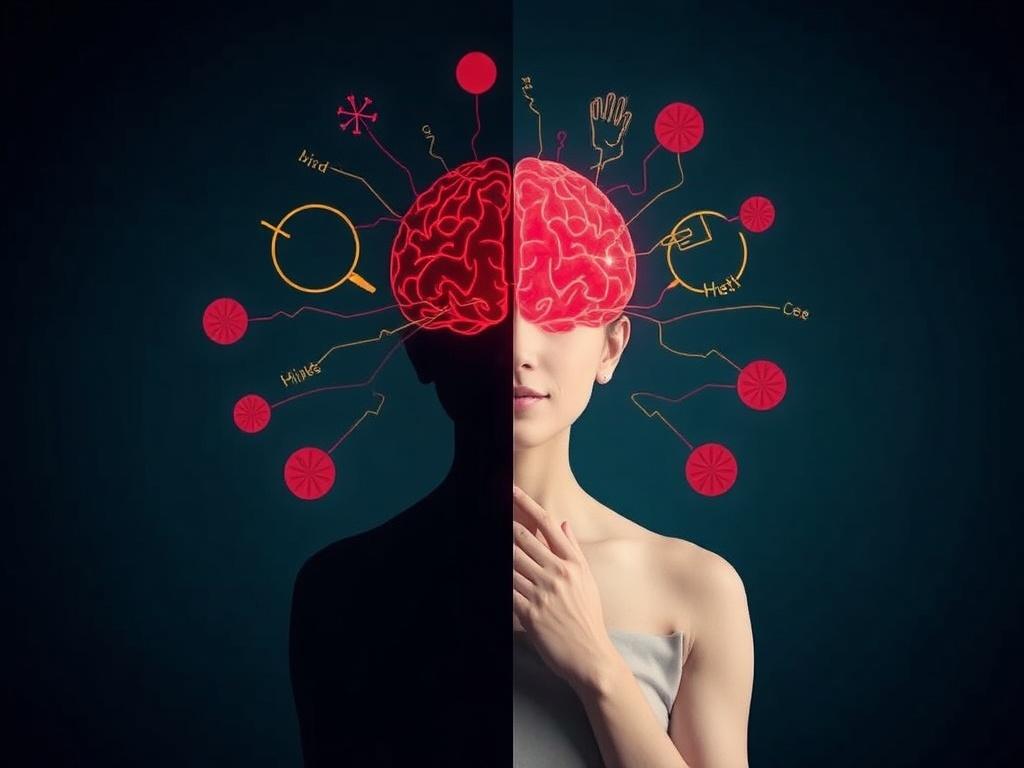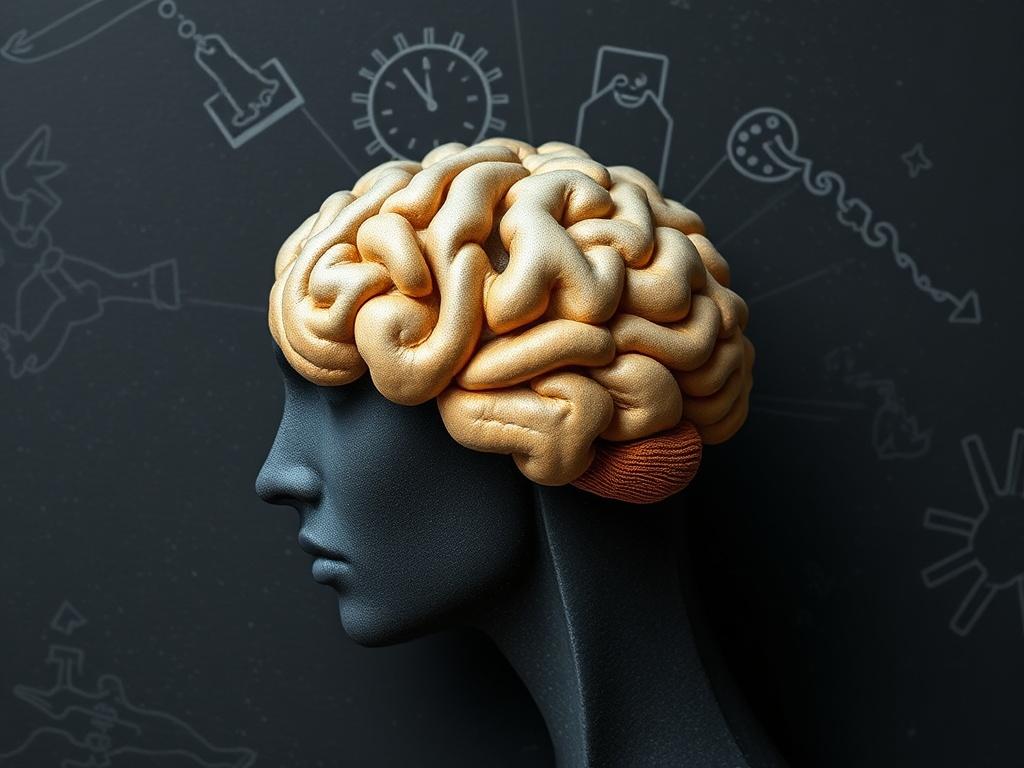Stress is an unavoidable part of life. Whether it’s from work deadlines, family responsibilities, or unexpected challenges, everyone experiences stress at some point. But while we often think of stress as a mental or emotional problem, its effects go far deeper. In fact, stress has a profound impact on our physical health, sometimes in ways we don’t immediately notice. It can influence everything from our heart rate to our immune system, leaving us vulnerable to a host of health problems over time. This article dives into how stress affects physical health, explaining the biological processes behind it, the risks it carries, and practical steps to manage stress effectively.
What Happens in Your Body When You’re Stressed?

Stress triggers a survival mechanism often called the “fight or flight” response. When your brain perceives a threat, it signals the release of stress hormones like adrenaline and cortisol into your bloodstream. These hormones prepare your body to either confront or escape the danger, increasing your heart rate, raising blood pressure, and boosting energy supplies. This reaction can be lifesaving in dangerous situations, but problems arise when stress becomes chronic, meaning it lasts over a prolonged period.
Chronic stress keeps your body in a heightened state of alertness, which puts continuous strain on your organs and bodily systems. For example, elevated cortisol levels over time can suppress your immune system, making you more susceptible to infections. Additionally, prolonged high blood pressure damages your cardiovascular system, increasing the risk of heart disease.
The Nervous System and Stress
Your autonomic nervous system — divided into the sympathetic (fight or flight) and parasympathetic (rest and digest) branches — plays a crucial role in how stress affects physical health. Stress activates the sympathetic nervous system, leading to faster heart rate, shallow breathing, and muscle tension. If this activation doesn’t subside after a stressful event, it can result in chronic health issues such as hypertension and gastrointestinal problems.
Immune System Suppression
One of the most significant ways stress alters physical health is through immune system suppression. Cortisol, while useful in short bursts, reduces the effectiveness of the immune response over time. This means stress can increase your chances of getting sick and slow down recovery. From the common cold to more serious illnesses, ongoing stress compromises your body’s ability to defend itself.
Common Physical Health Issues Linked to Stress
Stress doesn’t just cause temporary discomfort; it can be a major contributor to several serious physical health problems. Let’s look at some of the common conditions linked to stress:
| Health Issue | How Stress Contributes | Examples or Symptoms |
|---|---|---|
| Cardiovascular Disease | Stress raises blood pressure and cholesterol, damaging blood vessels | Heart attack, stroke, hypertension, chest pain |
| Digestive Problems | Stress disrupts digestion and can cause inflammation | Stomach aches, irritable bowel syndrome, acid reflux |
| Muscle Tension and Pain | Frequent muscle tightening causes pain and stiffness | Headaches, back pain, neck pain, jaw clenching |
| Weakened Immune Function | Elevated cortisol levels suppress immune cells | Frequent infections, slow wound healing |
| Sleep Disturbances | Stress interferes with the body’s natural sleep cycles | Insomnia, restless sleep, daytime fatigue |
The Connection Between Mental and Physical Health

Sometimes, we underestimate just how closely mental and physical health are intertwined. Stress sits at the intersection of these two, influencing both our emotions and bodily functions. Anxiety and depression, often driven by stress, can worsen physical symptoms, creating a vicious cycle.
For example, someone with chronic stress might develop insomnia. The resulting sleep deprivation worsens mental health, which in turn heightens stress levels and physical symptoms like headaches or stomach pain. Understanding this connection is crucial for tackling stress head-on and preserving overall health.
Stress and Hormonal Imbalance
Chronic stress disrupts the endocrine system—the network of glands that produce hormones. Cortisol is the primary hormone affected, but others such as adrenaline, noradrenaline, and sex hormones can also become imbalanced. These hormonal shifts influence appetite, metabolism, and even reproductive health, contributing to weight gain, fatigue, and menstrual irregularities.
The Role of Inflammation
One of the lesser-known ways stress damages physical health is through increased inflammation. While inflammation is a natural response to injury or infection, chronic stress can lead to excessive inflammation throughout the body. This “silent inflammation” is linked to many chronic diseases, including diabetes, arthritis, and neurodegenerative conditions like Alzheimer’s.
Signs You’re Experiencing Stress-Related Physical Health Issues
It’s important to recognize when stress might be impacting your physical health so you can take timely action. Here are some common signs and symptoms that stress is taking a toll on your body:
- Frequent headaches or migraines
- Ongoing muscle tension or pain, especially in the neck, shoulders, or back
- Recurring digestive troubles like nausea, diarrhea, or constipation
- Rapid heartbeat or palpitations
- Persistent fatigue even after rest
- Increased frequency of colds or infections
- Difficulty falling or staying asleep
- Sudden or unexplained changes in weight or appetite
- Skin problems such as acne, eczema, or rashes
If you notice several of these symptoms persisting, it’s a strong indication that stress is affecting your physical health.
Practical Strategies to Manage Stress and Protect Physical Health

Stress is a part of life, but it doesn’t have to control your health. There are many effective ways to reduce stress and its physical effects. Here are some practical strategies:
1. Regular Physical Activity
Exercise is a powerful stress reliever. It releases endorphins—natural mood boosters—and helps clear your mind. Activities like walking, swimming, yoga, or dancing not only calm your nervous system but improve cardiovascular fitness and muscle strength.
2. Mindfulness and Relaxation Techniques
Practices such as meditation, deep breathing, progressive muscle relaxation, and listening to calming music can lower stress hormone levels. Mindfulness helps you focus on the present moment and break the cycle of anxious thoughts.
3. Adequate Sleep
Good sleep hygiene is essential. Aim for 7-9 hours per night, avoid screens an hour before bedtime, and create a peaceful sleeping environment. Quality sleep supports immune function and hormone balance.
4. Balanced Nutrition
Eating a diet rich in fruits, vegetables, whole grains, lean proteins, and healthy fats supports your body during stressful times. Avoid excessive caffeine, sugar, and processed foods which can exacerbate stress responses.
5. Social Support
Talking to friends, family, or professionals can provide emotional relief and practical solutions. Support networks help you feel connected and reduce feelings of isolation.
6. Time Management
Organizing your day and setting realistic goals reduce the overwhelming feeling of too much to do. Break tasks into smaller steps and prioritize self-care.
7. Professional Help When Needed
Sometimes managing stress requires guidance from healthcare professionals or therapists. Don’t hesitate to seek help if stress is overwhelming or persistent.
Long-Term Impact of Untreated Stress on Physical Health
If stress remains unmanaged, its negative effects can accumulate, leading to chronic diseases that severely impact one’s quality of life. Long-term stress is associated with many health complications including:
- Heart disease and hypertension
- Type 2 diabetes through insulin resistance
- Chronic digestive disorders
- Obesity due to disrupted appetite regulation
- Autoimmune diseases from immune dysfunction
- Accelerated aging and cognitive decline
Recognizing stress and taking steps early can prevent these serious outcomes and promote healthier, longer lives.
Summary Table: Effects of Chronic Stress on Body Systems
| Body System | Effect of Chronic Stress | Potential Health Consequences |
|---|---|---|
| Cardiovascular | Increased blood pressure, heart rate, arterial damage | Heart attack, stroke, atherosclerosis |
| Immune | Suppressed immune response, inflammation | Frequent infections, autoimmune diseases |
| Digestive | Altered digestion and gut microbiota | IBS, ulcers, acid reflux |
| Musculoskeletal | Muscle tension and pain | Chronic pain, tension headaches |
| Nervous | Neurochemical imbalances, altered brain function | Memory issues, depression, anxiety |
How to Recognize and Address Stress Early
Early recognition and intervention can dramatically reduce stress’s impact. Practicing self-awareness helps you notice stress signs before they escalate. Keep a journal to track your mood, physical symptoms, and stress triggers. This can help identify patterns worth addressing.
Begin with small lifestyle changes like daily exercise, balanced nutrition, and mindful relaxation. Cultivate hobbies and activities that bring joy and promote calmness. If stressors are work-related, consider setting boundaries or speaking with supervisors about workload adjustments.
Role of Employers and Communities
Workplaces and communities can also play a vital role in combating stress. Providing resources such as wellness programs, mental health days, and supportive environments improves overall well-being and productivity.
Final Thoughts on the Relationship Between Stress and Physical Health
Understanding how stress affects physical health equips us to take charge of our well-being. Stress is not just a mental burden but a powerful factor that influences the body’s processes, often silently undermining health over time. By recognizing stress patterns, adopting healthy habits, and seeking support when needed, we can safeguard our body and mind against its harmful effects.
Conclusion
Stress, though an inevitable part of life, need not become a constant health threat. Its effects on physical health are complex and far-reaching, influencing cardiovascular health, immunity, digestion, muscle function, and beyond. While short-term stress can be beneficial in emergencies, chronic stress imposes serious risks that accumulate gradually but significantly. The good news is that stress management is within everyone’s reach through simple daily actions like exercise, proper sleep, mindfulness, and social support. Being proactive about stress not only improves your physical health but enhances your overall quality of life, making it an empowering journey toward balance and well-being. Recognizing stress as a critical factor in physical health is the first step, and from there, taking mindful control restores harmony between mind and body.




















